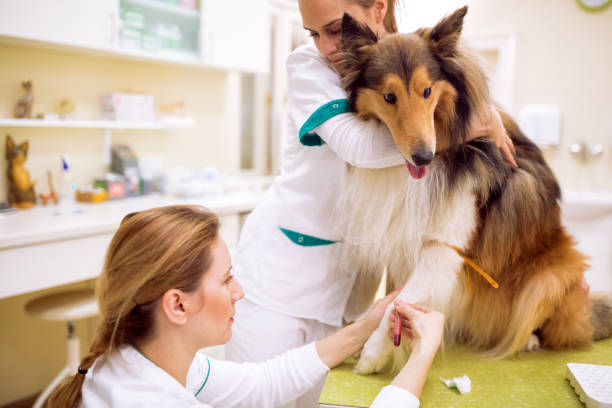The sight of a dog bleeding from its posterior can stir panic and concern in any pet owner. Rectal bleeding in dogs is a distressing symptom that warrants immediate attention and understanding. While it may signal underlying health issues, it’s essential not to jump to conclusions but instead approach the situation with clarity and knowledge. In this article, we’ll delve into the potential causes, symptoms, and appropriate measures to address dog bleeding from butt.
Causes of Rectal Bleeding in Dogs:
- Anal Gland Problems: Anal glands, responsible for secreting a scent-marking fluid, can become impacted, infected, or abscessed, leading to bleeding from the rectum.
- Trauma: Any form of physical trauma to the rectal area, such as injury from foreign objects, rough play, or aggressive grooming, can result in bleeding.
- Parasitic Infections: Intestinal parasites like hookworms, whipworms, or roundworms can cause irritation and inflammation, leading to rectal bleeding.
- Colitis: Inflammation of the colon, known as colitis, can arise from dietary indiscretion, food allergies, bacterial infections, or inflammatory bowel disease (IBD).
- Tumors or Polyps: Growths within the rectum or colon, whether benign or malignant, can cause bleeding and require veterinary evaluation.
Symptoms of Rectal Bleeding in Dogs:
- Visible blood in the stool or around the anus
- Straining during defecation
- Diarrhea or changes in stool consistency
- Lethargy or decreased appetite
- Pain or discomfort while sitting or defecating
- Excessive licking or biting of the anal area
What to Do If Your Dog is Bleeding from the Butt:
- Assess the Severity: Observe the extent of bleeding and any accompanying symptoms to determine the urgency of the situation.
- Contact Your Veterinarian: Immediately reach out to your veterinarian to describe the symptoms and seek professional guidance.
- Avoid Home Remedies: Refrain from administering any medications or home remedies without veterinary approval, as they may exacerbate the condition.
- Provide Comfort: Keep your dog calm and comfortable while awaiting veterinary care, minimizing their activity to prevent further irritation.
- Follow Veterinary Advice: Upon examination, your veterinarian will recommend appropriate diagnostic tests and treatment options based on the underlying cause of rectal bleeding.
Preventing Rectal Bleeding in Dogs:
- Maintain a balanced diet tailored to your dog’s needs.
- Regularly express anal glands if recommended by your veterinarian.
- Practice good hygiene and prevent access to potential hazards.
- Schedule routine veterinary check-ups to monitor your dog’s health.
Conclusion:
Rectal bleeding in dogs is a concerning symptom that necessitates prompt attention and proper care. By understanding the potential causes, recognizing symptoms, and seeking timely veterinary assistance, you can ensure the well-being of your canine companion. Remember to prioritize your dog’s health and never hesitate to consult with a veterinarian when faced with concerning symptoms or changes in behavior. With vigilance and proactive measures, you can help your furry friend lead a healthy and happy life.

